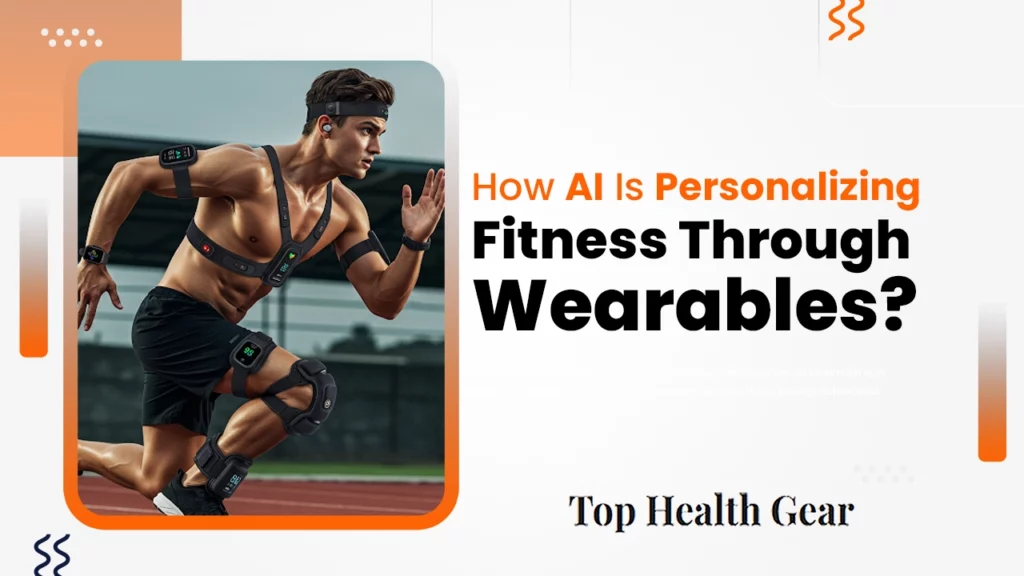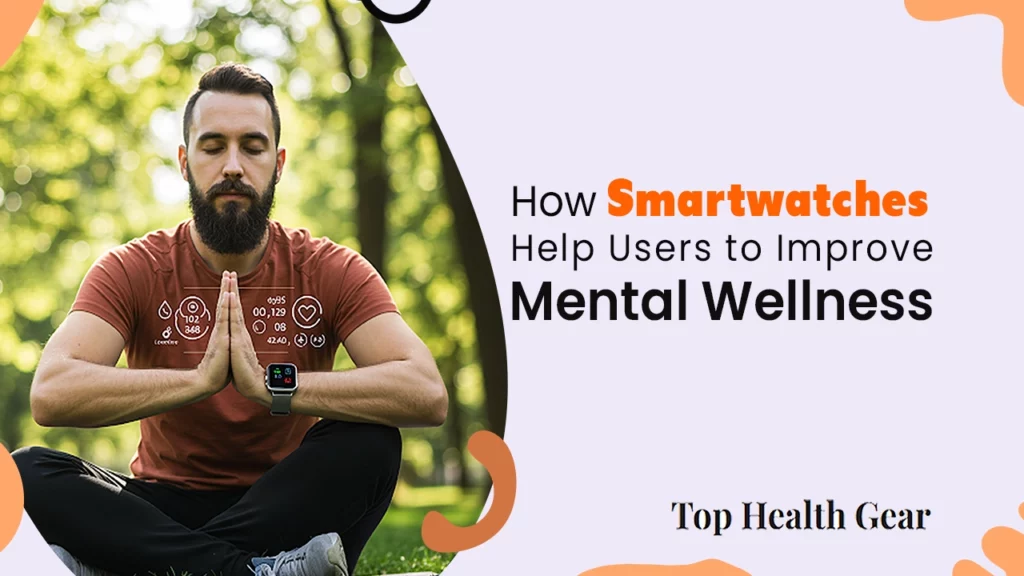Technology has revolutionized how we approach health and fitness. But the real game-changer? Artificial Intelligence (AI). More than just step counters or heart rate monitors, modern fitness wearables have become smart companions—learning from your behavior, understanding your needs, and guiding you like a personal coach.
Whether you’re a weekend warrior, a gym rat, or just getting started on your wellness journey, AI-powered wearables are helping tailor your fitness experience like never before. Let’s explore how this exciting shift is making your health journey smarter, more efficient, and deeply personal.
The Evolution of Wearables: From Trackers to Smart Coaches
Not long ago, fitness trackers were glorified pedometers. They logged your steps, tracked sleep, and maybe buzzed when you sat too long.
Fast forward to today, and things look very different. Wearables like the Apple Watch, Fitbit, Garmin, and WHOOP now deliver real-time insights into your body’s performance—and AI is the secret sauce powering these advances.
What Makes AI a Game-Changer?
AI collects and processes tons of data from your wearable—like your heart rate variability (HRV), oxygen levels, workout history, and even your stress patterns. Then it uses machine learning to analyze trends, predict your needs, and deliver hyper-personalized guidance.
1. Workouts Made Just for You

Wearables have evolved significantly—they now customize your workouts based on factors like sleep quality, recovery status, and heart rate trends. This level of intelligent personalization is why more and more fitness enthusiasts are turning to the top wearables to monitor health, ensuring a smarter and more balanced approach to their fitness routines.
These devices don’t just track your activity; they learn from your body’s signals, offering real-time feedback and adjusting your training to suit your needs. Whether you’re recovering from a tough workout or preparing for your next challenge, these wearables help you stay on track and avoid overtraining.
This level of personalization helps prevent burnout, injury, and maximizes progress.
2. Smarter Sleep, Better Recovery
You can’t out-train poor sleep. That’s why AI has turned sleep tracking into sleep coaching.
Today’s wearables do more than log hours. They detect sleep stages (REM, deep, light), disturbances, and recovery windows. AI then interprets this data and offers tips like:
- Ideal bedtimes for your circadian rhythm
- When to avoid caffeine or blue light
- Suggestions for optimizing your wind-down routine
For example, the Oura Ring tracks readiness and delivers daily sleep scores with personalized suggestions—helping users recover smarter, not harder.
Better sleep = better workouts + improved mood + faster muscle repair.
3. Real-Time Health Alerts
AI isn’t just reactive—it’s proactive. That means it doesn’t just tell you what happened—it alerts you to what might happen.
Some top wearables now offer:
- Early illness detection by analyzing body temperature and respiration changes
- Stress alerts when your HRV drops or your heart rate spikes unexpectedly
- Dehydration reminders based on sweat data and activity level
Think of it like having a wellness radar on your wrist.
Imagine catching early signs of overtraining or illness before you feel symptoms—just because your wearable noticed changes in your vitals. That’s the magic of AI-driven insights.
4. Smarter Eating with AI

We all know fitness is 70% what you eat. AI wearables are now syncing with nutrition apps to close the loop between diet and performance.
Here’s how:
- Integrating with apps like MyFitnessPal, Noom, or Lifesum
- Tracking your macronutrients, hydration, and calorie intake
- Suggesting food choices based on your activity and recovery data
For instance, if you’ve had a high-output day, your device may nudge you to increase protein or electrolyte intake. It’s not just about counting calories—it’s about fueling your body intelligently.
Soon, AI may even help detect micronutrient deficiencies based on sleep, stress, and energy patterns.
5. Goals That Evolve With You
Gone are the days of one-size-fits-all goals like “10,000 steps.” AI makes your goals smarter and more dynamic.
Here’s what’s happening:
- Daily movement targets adjust based on your prior day’s recovery and activity
- Adaptive cardio and strength benchmarks tailored to your performance
- Progressive goal-setting that evolves with your body’s improvements
Garmin’s AI tools, for example, adjust your running pace goals and training intensity as you improve endurance or VO2 max.
The result? Goals that push you just enough—without overwhelming or under-challenging you.
6. Supporting Mental Wellness
AI in wearables is tapping into emotional and mental well-being, not just physical performance.
Features include:
- Stress detection via heart rate variability and skin conductance
- Guided breathing or mindfulness exercises
- Prompts to take mental breaks during the day
Fitbit Sense and Apple Watch both offer stress tracking features—showing how your mood shifts throughout the day and recommending breathing techniques to calibrate. Features like these highlight how smartwatches support mental wellness, using AI to monitor emotional patterns and offer timely interventions that go beyond physical fitness.
Mental fitness is now a key part of your overall health profile.
7. Social Motivation and Virtual Coaching
AI also brings community and coaching right to your wrist:
- Smart coaching prompts based on your performance (e.g., “Push a little harder today, you’re recovered!”)
- Virtual challenges to compete with friends or fitness groups
- Personal best tracking with progress milestones
For example, Peloton’s AI features adapt your workouts based on past performance and suggest real-time modifications during classes.
You stay connected and accountable—even when working out solo.
8. All Your Health Data, Connected
The best part? AI wearables don’t just track—they connect. Most modern devices integrate with platforms like:
- Apple Health
- Google Fit
- Samsung Health
- Strava
- Fitbit Coach
This ecosystem creates a 360-degree view of your health—from steps to sleep to stress to nutrition—and the AI behind it makes connections that even you might miss.
Imagine your wearable noticing you’re sleeping poorly on days you drink less water. Or that your energy crashes coincide with low protein days. AI spots the patterns. You reap the benefits.
What’s Next for AI Wearables?
This is just the beginning. Here’s what’s on the horizon:
Genetic-Based Personalization
AI could soon combine your wearable data with DNA testing to tailor fitness and nutrition plans even more precisely.
AI-Powered Injury Prevention
By analyzing movement, posture, and joint stress, AI might predict and help you avoid injuries before they happen.
Emotional AI
Future wearables may track your voice, tone, and facial expressions to detect mood changes—and help you manage emotional health more deeply.
Environmental AI
Some wearables may start adapting workouts based on your local environment—like air quality, temperature, or pollen levels.
Conclusion
AI is helping us understand our bodies better than ever, offering personalized insights to improve training, recovery, sleep, and overall health. However, the key is that you’re still in control. Use your AI wearable as a guide, but always listen to your body, mind, and motivation. When you combine smart tech with your own instincts, your fitness journey will reach new heights.
FAQs
What are AI wearables for fitness?
AI wearables for fitness are smart devices that use artificial intelligence to collect data on your workouts, recovery, sleep, and other health metrics to offer personalized insights and recommendations.
How do AI wearables improve workouts?
AI wearables personalize your fitness routine by adjusting your workouts based on factors like recovery status, heart rate trends, and sleep quality, helping you avoid burnout and maximize progress.
Can AI wearables track sleep and improve recovery?
Yes, AI wearables track your sleep stages, disturbances, and recovery patterns. They offer personalized recommendations for improving your sleep, which in turn enhances workout recovery and overall health.
Are AI wearables useful for mental wellness?
AI wearables track stress and mood through heart rate variability and skin conductance. They offer mindfulness exercises and breathing prompts to help reduce stress and support mental well-being.
How accurate are AI wearables for fitness tracking?
AI wearables use advanced sensors and machine learning algorithms to provide accurate insights into your health and fitness data. However, their accuracy can vary by brand and model.

